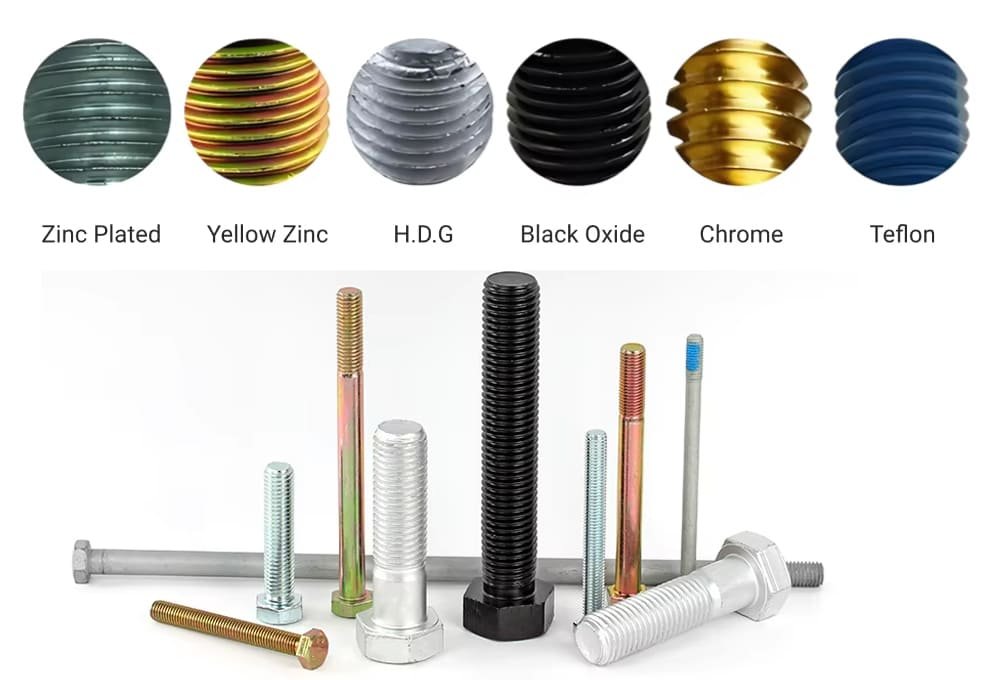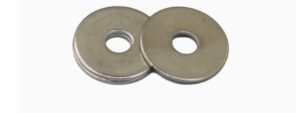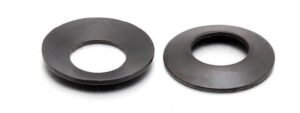As solar energy becomes a leading source of renewable energy, the focus of many solar projects has shifted not only toward performance but also toward environmental responsibility. Fasteners, an essential part of solar installations, may seem like a small component, but their material choice, production processes, and longevity can significantly influence both the performance of the system and its environmental footprint.
This guide will explore how solar fasteners impact sustainability, how to select the most eco-friendly fasteners for solar projects, and how these decisions affect overall performance and long-term costs.

1. What Is the Role of Fasteners in Solar Sustainability?
When we talk about solar sustainability, it’s about more than just the energy the system produces. The materials used in solar projects, including fasteners, should be chosen carefully to ensure they are long-lasting and don’t harm the environment.
- Durability and Longevity: High-quality fasteners, like stainless steel or aluminum, can significantly extend the lifespan of the solar system by resisting corrosion and environmental damage. Durable fasteners reduce the need for replacements, which helps minimize waste and maintenance costs.
- Reducing Waste: The longevity of solar fasteners plays a key role in reducing long-term waste. Choosing durable, corrosion-resistant materials ensures that the fasteners will not need to be replaced as frequently, leading to fewer materials being discarded and less frequent maintenance work.
When selecting fasteners, choosing those that have a longer life span means less frequent replacements and fewer resources spent on maintenance, directly contributing to the overall sustainability of the solar project.
For more information about selecting the best fasteners for solar projects, check out How to Choose the Right Fasteners for Solar Energy Projects.
2. How Can You Choose Materials That Are Environmentally Friendly?
The first step in ensuring the sustainability of solar fasteners is selecting the right materials. Different materials come with different environmental impacts, and understanding this can help guide the procurement process.

Common Fastener Materials:
- Stainless Steel: Stainless steel is a popular choice for solar applications due to its strength and excellent corrosion resistance. Not only does it last longer, but it is also fully recyclable, making it an environmentally friendly choice.
- Aluminum: Lightweight, corrosion-resistant, and fully recyclable, aluminum is often used in large-scale solar installations to minimize the weight of mounting systems while still maintaining strength and durability.
- Galvanized Steel: A more cost-effective choice, galvanized steel provides adequate protection against rust and corrosion. However, the coating used on these fasteners should meet environmentally-friendly standards like RoHS and REACH to ensure they don’t release harmful chemicals into the environment.
Importance of Material Selection:
Choosing the right material is not just about strength and durability; it’s about environmental responsibility. Using recyclable materials like stainless steel or aluminum helps reduce the overall environmental impact of the installation. For procurement teams, choosing fasteners made from materials that align with sustainability goals can also boost the environmental certification of solar projects, like LEED or BREEAM.
For more insights on how material choice affects your solar fasteners’ sustainability, refer to our earlier guide on Selecting the Right Fasteners for Solar Projects.
3. How Does Surface Treatment Help Protect Fasteners and the Environment?
Surface treatment is an important step in making sure fasteners last longer and don’t need to be replaced too often. This reduces waste and keeps your project environmentally friendly.

Common Surface Treatments:
- Zinc Plating: Zinc plating is a common and affordable surface treatment that provides basic corrosion protection. Zinc-plated fasteners have an extended service life, which reduces the frequency of replacements, thus contributing to sustainability goals.
- Magni Coating: A more advanced coating that offers superior protection, especially in harsh environmental conditions like coastal areas. This treatment increases the lifespan of fasteners while providing corrosion resistance. The Magni coating is particularly effective in reducing the environmental impact by minimizing the need for replacements and repairs.
- Anodizing for Aluminum: This process adds a protective layer to aluminum fasteners, making them more durable and resistant to corrosion without compromising recyclability. It is a key surface treatment for fasteners used in solar panel systems, especially for systems located in harsh outdoor conditions.
By choosing fasteners with appropriate surface treatments, solar companies can ensure their systems last longer, reducing the need for replacements and minimizing the overall environmental impact.
4. How Can You Minimize Waste Through Efficient Procurement and Usage?
Sustainability is not just about the materials you choose; it also involves optimizing procurement practices to minimize waste. Efficient procurement processes can significantly reduce the environmental impact of fasteners in solar projects.
- Bulk Purchasing: When purchasing fasteners in bulk, solar companies can reduce packaging waste and the carbon footprint of transportation. Bulk purchasing also reduces overall costs, which is an added bonus for procurement teams.
- Optimizing Packaging: Choosing suppliers who offer reusable or minimal packaging can help further reduce waste. For example, using bulk packaging or recyclable materials for fasteners ensures that fewer resources are consumed during the packaging process.
By optimizing the procurement and transportation of fasteners, solar companies can reduce their environmental impact while also ensuring cost-efficiency.
5. How Do Certifications and Compliance Ensure Environmentally Responsible Products?
For solar energy procurement teams, selecting certified fasteners can ensure compliance with environmental standards, enhance project credibility, and boost sustainability. Many fasteners are now manufactured with certifications that guarantee they meet international environmental standards, such as:
- RoHS (Restriction of Hazardous Substances): Ensures fasteners are free from harmful chemicals, contributing to cleaner solar installations.
- REACH (Registration, Evaluation, Authorization, and Restriction of Chemicals): Guarantees that the fasteners meet European Union regulations for chemical safety.
- ISO 14001: A certification that ensures manufacturers follow environmentally responsible practices in their production processes.
Using certified fasteners not only aligns your solar installation with global sustainability standards but also positions your projects for greater market appeal, particularly for clients or markets that value environmental responsibility.
6. How Do Long-Term Benefits of Sustainable Fasteners Save Costs?
Choosing environmentally friendly, durable, and efficient fasteners may come with a higher upfront cost, but the long-term benefits far outweigh the initial investment. High-quality, corrosion-resistant fasteners reduce the need for frequent replacements, leading to lower maintenance and repair costs.
- Reduced Maintenance Costs: Durable fasteners that resist corrosion mean fewer repairs or replacements over the life of the solar system, leading to significant cost savings.
- Increased System Longevity: A longer-lasting installation means that the solar system can continue producing clean energy for more years, providing long-term financial and environmental benefits.
- Higher Green Ratings: Solar projects that use sustainable materials and certified fasteners are more likely to earn green certifications, which can increase their attractiveness to eco-conscious buyers.
Conclusion
Choosing the right fasteners for your solar projects is important not only for the performance of the system but also for the environment. By selecting materials that are durable, recyclable, and treated to resist corrosion, you can ensure that your solar system lasts longer, reduces waste, and helps lower the environmental impact. Sustainable fasteners also help save money on long-term maintenance and can enhance your project’s reputation by meeting green certification standards.
For more detailed guidance on selecting fasteners for your solar projects, be sure to check out our full guide on How to Choose the Right Fasteners for Solar Energy Projects.
Contact Hengrui Fastener for Custom fastener
For specialized applications that require custom solutions, Hengrui Fastener offers high-quality, customizable bolts and fasteners. Whether you need a specific size, material, or finish, Hengrui can provide tailored fasteners to meet your exact requirements. Contact Hengrui Fastener to learn more about our products and services.






